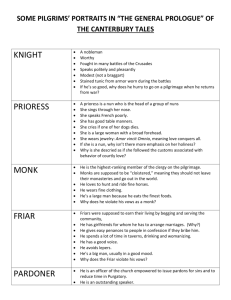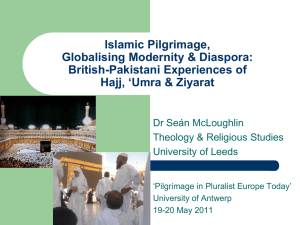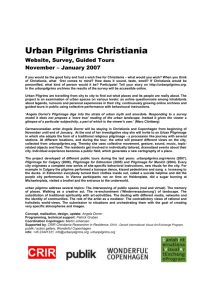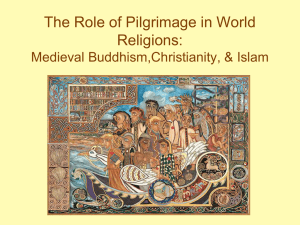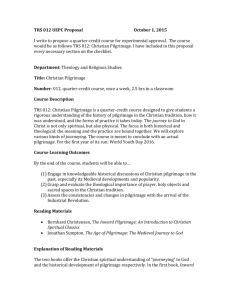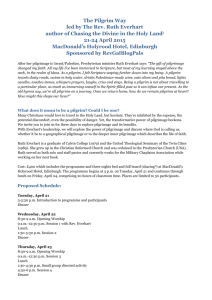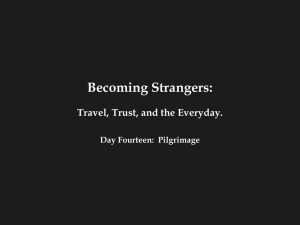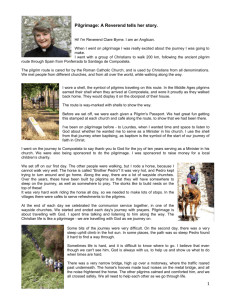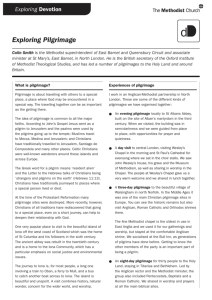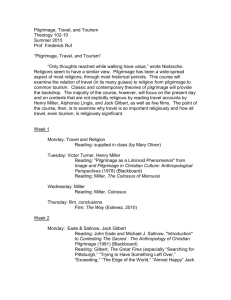Pilgrimage Shrines and Healing in Late Medieval - My
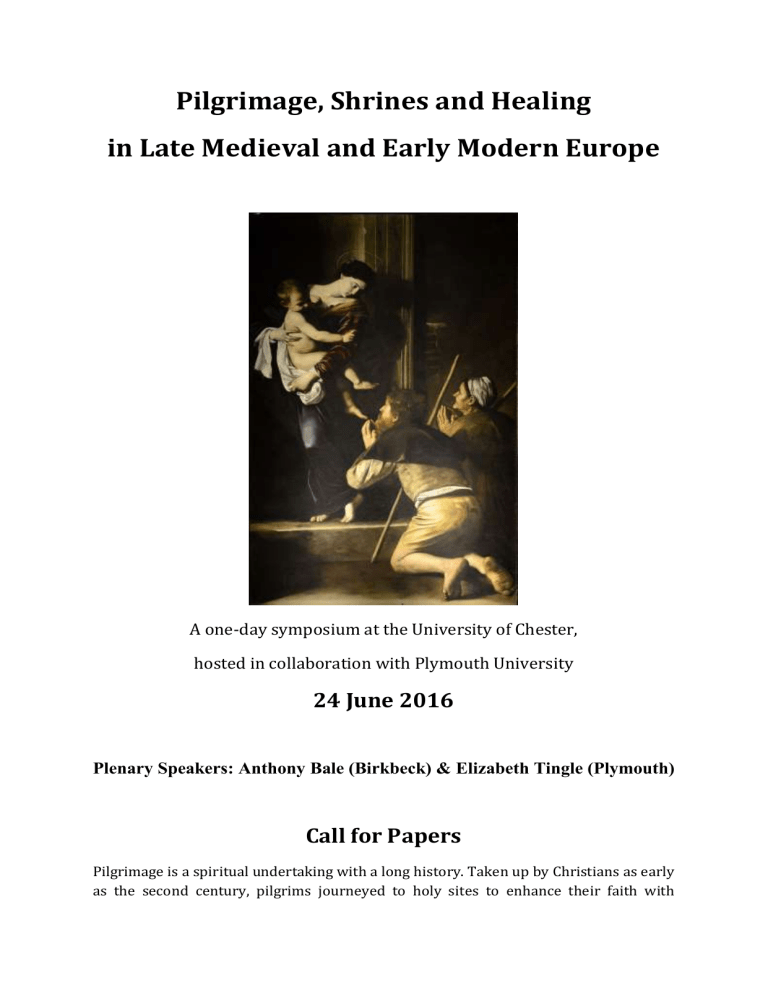
Pilgrimage, Shrines and Healing in Late Medieval and Early Modern Europe
A one-day symposium at the University of Chester, hosted in collaboration with Plymouth University
24 June 2016
Plenary Speakers: Anthony Bale (Birkbeck) & Elizabeth Tingle (Plymouth)
Call for Papers
Pilgrimage is a spiritual undertaking with a long history. Taken up by Christians as early as the second century, pilgrims journeyed to holy sites to enhance their faith with
prayers and also for the expiation of sin in the performance of public penance. The association with early Christian shrines as spaces for healing replaced earlier pagan traditions and, in turn, generated a thriving medieval material culture of pilgrimage inextricably connected to the cult of saints. Pilgrimage has also long been more broadly symbolic of devotional life. Spiritual doubt and temptation, conversion, and the pursuit of salvation have historically been represented using the language and vocabulary of the spiritual journey.
If the Reformation brought this tradition of Christian pilgrimage into question via its attack on indulgences, it nonetheless proved resilient. Recent histories have begun to trace the enduring nature of pilgrimage as a devotional practice in early modern
Catholic Europe, as pilgrims continued to flock to shrines to venerate relics and sacred sites, in return for indulgences, healing and spiritual comfort. As a number of scholars have recently observed, the celebration of sacred landscapes through the promotion and veneration of local and regional shrines was particularly characteristic of post-
Tridentine Catholicism. For the literate elite, mental pilgrimage was also advocated as a meditative technique to facilitate interior journeys to more distant holy sites.
The aim of this one-day colloquium is to explore continuity and change in material and spiritual pilgrimage across the late medieval and early modern period. We are seeking contributions from scholars whose research speaks to these themes in the pre- and post-Reformation eras.
We invite proposals for 20-minute papers on themes that might include (but are not restricted to):
Pilgrimage: local, regional, international
Sacred landscapes and architecture of pilgrimage
Pardons and indulgences
Shrines and the cult of saints
Healing and miracles
Relics, paintings, ex-votos and the material culture of pilgrimage
Confraternities and collective pilgrimage
Pilgrims and their representation
Mental pilgrimage and meditation
Spiritual journeys
Please submit an abstract of no more than 300 words to Jennifer Hillman at j.hillman@chester.ac.uk
by Friday 11 March 2016.

